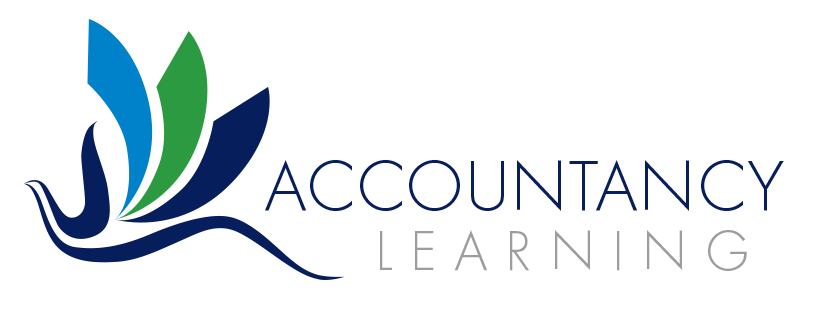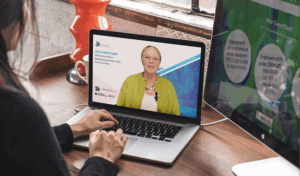We are frequently asked the question “How do I become an Accountant”.
This is a very short question with a very long answer! If you want to know how to become an Accountant, the first part of the answer must unfortunately be another question:
“What sort of an Accountant do you want to become?”
There are lots of different types of accountant, e.g.
- Chartered Accountant ACA or CA
There are different national variants of this, e.g. ICAEW (the Institute of Chartered Accountants in England and Wales); ICAS (Scotland); ICAI (Ireland)
There are also Institutes in Australia, Canada, Australia, New Zealand and South Africa - Chartered Certified Accountant (ACCA)
- Chartered Management Accountant (CIMA)
- Chartered Public Finance Accountant (CIPFA)
- Chartered Institute of Taxation
There are also other Professional Accounting Bodies, including:
- IFA – Institute of Financial Accountants
- AIA – Association of International Accountants Other Accounting Technician, Professional Accountant or Bookkeeping bodies include:
- AAT – The Association of Accounting Technicians
- ICB – Institute of Certified Bookkeepers
- IAB – International Association of Bookkeepers
- ATT – Association of Tax Technicians
The above list is not exhaustive and in addition to other UK bodies there will be other professional accountancy bodies in other countries.
(PS. If you see an FCA instead of an ACA, this stands for Fellow Chartered Accountant, which can only be applied for 10 years after qualifying)
- IAB goes up to Level 3 qualifications
- AAT goes up to Level 4
- IFA goes up to Level 5
- ACA and the other Chartered qualifications go up to Level 7
Click HERE to see a graphical representation of this.
Back to the question – “How do I become an Accountant?”
So, what is your starting point and what sort of Accountant do you want to become?
- Are you a school leaver with GCSEs, AS levels or A Levels?
- Are you a graduate with a relevant (accounting) degree or a non-relevant degree?If a graduate, you can start studying for a Chartered qualification. You can also do this with A Levels in certain circumstances, but you would normally be encouraged to start at a lower level and then work your way up. However, and it is a BIG however, one of the main limiting factors for following this route is that you will be required to obtain a specified amount (and range) of work experience within a Training Organisation / Employer approved by the Professional Body you are studying towards. i.e. you need to be offered a training contract of some form. You can get started on your studies but you won’t be able to finish them and become a member, without that crucial work experience in an approved training office, normally a minimum of 3 years. Without this, you can be left high and dry, part qualified and unable to qualify. For the ACA route, these training places are very hard to come by and competition for them is fierce. When I qualified, 98% of ACA trainees were graduates. However, there are a growing number of trainees who leave school after “A” level; they then undertake an Apprenticeship in Accounting to complete their AAT qualification and after that, progress to ACA, claiming exemptions from some of the Certificate Level papers. There are also exemptions for progression to ACCA and CIMA. The AAT is a great building block for this and a way of getting one’s foot in the door with an employer.
- Do you have a number of years’ experience in accounting but no accounting qualifications? If this is the case, then we would (obviously!) recommend that you complete the AAT qualifications so that you have a recognised qualification, with professional credibility, that both reflects your current knowledge/skills and enhances upon them. The question is where to start – at what level.
Click HERE for a brief summary of the entry routes and progression options
Alternatively, your can request a comprehensive “FREE Guide To Your AAT Studies” by contacting us HERE
This will explain the various entry options and which might be best for your particular circumstances. We do get a lot of students, who despite having prior experience, start with the (Level 2) Foundation Certificate in Bookkeeping in order to a) remind themselves of and refresh those double entry principles and b) get back into a study routine on a topic they understand and c) get used to the AAT terminology and the computer based exam process. They then progress to the full (Level 3) Advanced Diploma in Accounting.
- Are you someone who has no experience in accounting but are thinking of a career change and thought that accountancy might suit you?
Well – as the song goes “Let’s start at the very beginning…..”!!
(When you read you begin with ABC; when you sing you begin with Do-re-mi; with us you begin with accounts that are T) (Sorry for that. I couldn’t stop myself!?!)
We would generally recommend that you start with the (Level 2) Foundation Certificate in Accounting. If you are able to put in about 8 hours of study each week, you could plan to complete this in 8 months (we have had a very keen student complete it in 15 weeks).
You could then progress to the (Level 3) Advanced Diploma in Accounting and then to the (Level 4) Professional Diploma in Accounting, taking 12 months and 13 months respectively on the same 8 hours of study per week. It could take you longer or you could complete it quicker. Pete, who was one our students and who now works for us, will have taken around 14 months to complete all 3 levels. Mind you he is very motivated and pretty bright……but don’t tell him I said this!
- What do you want to end up doing?
- Do you want to be an Accountant? Or, do you want to be a Bookkeeper and offer bookkeeping services to small clients – and then pass the really technical stuff, (including tax advice), onto a friendly firm of accountants?
If so, then you probably would prefer to undertake a Bookkeeping qualification. However, this will be the subject of another Blog! Having said that, the AAT exams that cover the AAT bookkeeping qualifications are also included as part of the wider range of exams that are included in the AAT accounting qualifications. So, if you want to, you can start with the bookkeeping exams and when you find you love it, progress to the full accounting qualification, making use of the exams you have already passed!
Help!
If you think that starting with the AAT qualification is right for you but you would like to talk to someone to discuss your options in more detail, do give us a call – or fill in an enquiry form HERE and we will call you (UK only otherwise the phone bill will cost us a fortune!)




